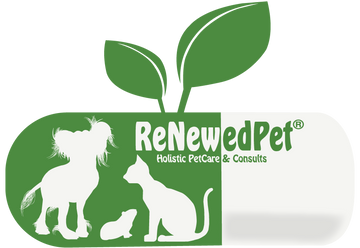
The Dangers of Dry Food for your pets!
The Dangers of Dry Food
The many reasons dry food/kibble is a poor choice for your pets!
Unfortunately as affordable and convenient dry food is one of the very WORST thing you can do for your pet! Dry food, be it premium, prescription or made with “natural”, or grain-free ingredients, harms your pet's health. The reason is that cats and dogs require the majority of their diet to be form meats and fats, and fry food consists mostly of starch and carbohydrates; it must be, as it can't be manufactured and extruded otherwise. Regardless of the quality of the ingredients, the simple fact that it is carb-laden and dry is enough to make it a terrible choice for pets. The carbs take the place of healthy meat-derived protein and fats that are vital for our pets. All of these factors make dry foods detrimental to health.
The problems with dry food are:
- Low moisture content
- High in carbohydrates
- Protein from plant rather than animal sources
Moisture Content
Cats and dogs must have water in their food, especially cats as they are not big on drinking water and will live chronically dehydrated on a dry diet. Think of the fact that a cat’s natural diet, a mouse, is about 65 to 75% moisture.
Our pets evolved getting most of their fluid intake from the foods they ate. Again, especially true for cats as they don't drink a lot of water because they don't have the thirst drive that dogs or humans has. As creatures that evolved in the desert, they naturally concentrate their urine. A cat getting only dry foods will drink water, but will have a hard time making up for the lack of moisture in the food, leading to even more concentrated urine. This can promote feline lower urinary tract disease.
Our pets should be fed a diet with a moisture content that is close to what their natural prey diet would be: around 65 to 80 percent moisture. A raw cat food or a canned diet both are in this range.
High in Carbohydrate
A cat's natural diet, usually rodents, rabbits, insects and birds, is usually less than 2% carbohydrate. Dry cat food is generally 25-50% carbohydrate.⁴ Not only does this excess carbohydrate promote obesity in cats, but it's also implicated in diabetes.
Likewise, a dogs natural diet, of small rodents, rabbits, birds, or larger prey caught within a pack along with the vegetable matter they would naturally scavenge would contain anywhere form 10-25% carbohydrates.
Cats & dogs have a physiological decrease in the ability to utilize carbohydrates due to the lack of specific enzymatic pathways that are present in other mammals, and they lack a salivary enzyme called amylase which is required to digest carbohydrates.
Another point to consider is that all carbohydrate, whether it be it form a vegetable, a grain, or a fruit, breaks down into sugar within the body, which is something that our pet’s certainly do not need in excess. Study after study, link sugar consumption to illness, including cancer. Eating a high-carb diet really wreaks havoc on a pet's body. Carbs are usually thought of as energy foods, but our pets can easily and efficiently utilize protein and fat very efficiently for those needs.

The Dry Food and Dental Health MYTH
Dry foods are not good for your pet's dental health. People like to think that dry foods help clean a pet's teeth, but the opposite is true. According to Dr. Guillermo Díaz, MV: "The shape of the kibble is generally small in size which makes it very difficult for a pet to chew on, so they generally swallow the whole pellet as presented. This has zero polishing effect on the surface of the teeth. Moreover, when in contact with the saliva, the high content of carbohydrates, or polysaccharides, in the pellet is released and adheres on the surface of the teeth causing the first stage in the formation of tartar and periodontal disease: the formation of dental plaque."
More-over, dry food as it is initially manufactured would be of no interest to a pet. It must be sprayed with flavorings and their accompanying odors to interest the pet in eating it. An entire industry has arisen to manufacture such sprays for this biologically-inappropriate food product, which have sometimes been the cause of contaminated dry foods which have harmed and killed many pets.
One last point to consider is the risk of dry food, as it can be contaminated with mold, fungus or mycotoxins due to improper grain storage. As kibble is unlikely to be made from the highest quality grain; often, as with the meats used, made from grain not fit for human consumption which is a further concern. Therefore, make the right decision for your pet, and ditch the dry food today! Schedule an appointment with your holistic pet coach now to learn about how to properly switch your pet’s food, and which food is a much better option for your pet’s life!
For personalized help for your cat, simply reach out for a one-on-one consult with your holistic pet coach!
©2019
April Arguin, RDH, CFN, MPH
~aka~ HolisticPetCoach_April
